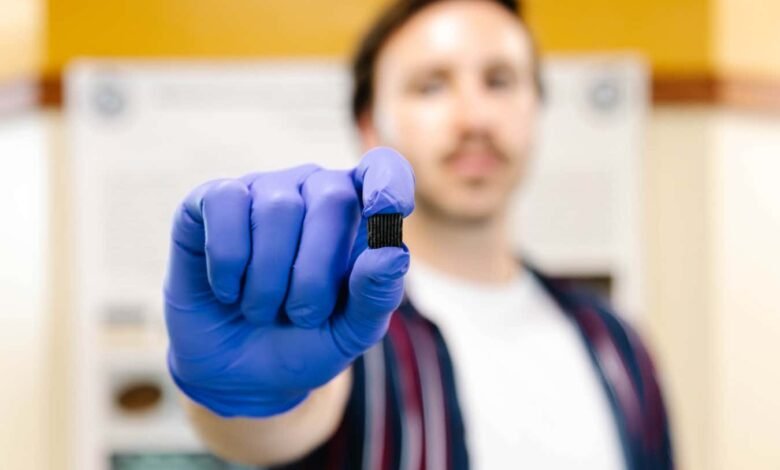Science
Electrodes made from bread could replace metal conductors


David Bujdos holds a bread-based electrode
Liz Palmer
Old pieces of bread can be transformed into precisely shaped electrodes using water and heat. The bread-based components could replace metal electrodes in devices while reducing the hundreds of tonnes of bread wasted daily.
“Bread has all sorts of stuff in it, such as starch, protein and water,” says David Bujdos at the University of Pennsylvania. “You can just heat it at a really high temperature without oxygen and you get the carbon backbone out of that.”
Source link




